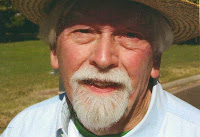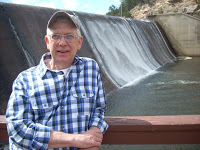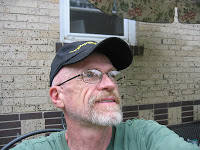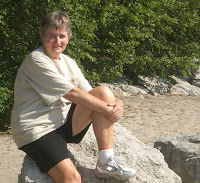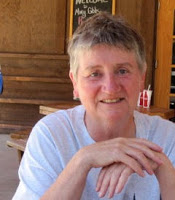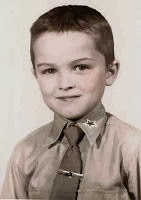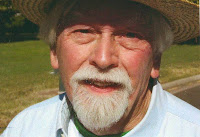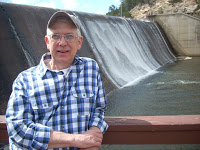When I was a toddler, my parents wanted me to do things their-way. While potty-training, my dad demonstrated how to pee standing up. As I did not like to wear wet diapers and the fact it was fun to “aim” at different spots in (or at least near) the toilet I adapted quickly; although my mom probably wished my “aim” was a lot more accurate. No one ever demonstrated how to go “number 2”. They only verbally explained the “procedure” and the expected “outcome”. At this time “Houston we have a problem” became my-way’s “game of choice”.
Their-way involved them standing there watching me sit on the juvenile-throne expecting me to do my business. My-way involved them leaving me alone in the room. Now, I had never had an issue with mom or dad watching me pee standing up or sitting down, but for some reason I didn’t like them watching me for “operation number 2”. It was either that, or I took some kind of sadistic pleasure waiting for them to release me and then going outside and squatting, filling my training pants with the material I’d been holding back. Besides the sadistic streak, I probably enjoyed their cleaning my private (or to them my public) parts after I’d made the mess. The warm or cold water washcloths rubbing and scrubbing those sensitive genital regions undoubtedly felt as terrific back then as it does now.
Finally arriving at the terrible part of being 2 which came with the twin concepts of “I have choices” and “the-others-keep-asking-me-if-I-want-something-and-offering-me-things-as-they-ask-the-question”, it became inevitable that my growing self-awareness finally made the connection with the fact that I could say, “NO!”. At that point their-way became, “their-way-or-else”. The “not-their-way” always had unpleasant consequences. Did I ever mention that I got lots of spankings? Apparently, I was either a slow learner, just plain willful, headstrong, or addicted to “my-way”.
Anyway, many months and spankings later, I finally arrived at age 4. By this period, I realized that their-way was less painful, but I kept to my-way when not being closely monitored. However, outright lying was not yet something available to me due to insufficient brain development and lack of an example I could recognize. Nonetheless, my developing self-awareness allowed me to understand that their-way involving eat-everything-on-your-plate did not fit into my budding comprehension of what my taste buds and throat muscles were trying to communicate to me. There was a serious mismatch between their-way (eat-everything) and my-way (eat-everything if it tastes good or doesn’t cause gagging). With lots of “prompting” on their part, I really tried to do it their-way, but ultimately, it was the “second-coming” of my dinner that finally convinced them that my-way was best.
At the age of 5, their-way still involved expectations of strict and swift obedience; as in “go to your room and change all your clothes”. I was perfectly willing to do just that, but there was another “Houston we’ve got a problem” moment. In 1953 ADD had not yet been invented, if it had I could have been a poster-child. I only have a mild case but it was combined with a well-developed sense of 5-year old scientific curiosity. So, my-way manifested as, when I was naked changing clothes the scientist part of me wanted to learn all about the hard little “spiky-thing” attached to me. Thus, changing clothes became a secondary pursuit and exploring the unknown phenomena briefly became my primary concern, just before the exploration was interrupted by yet another spanking of which I’ve written about before. My-way for several types of scientific self-exploration which followed also included the catch phrase, “explore in private” or in other words, my “don’t-get-caught-way”.
At age 10 their-way was effectively my step-father’s-way. In the summer of 1958 I was his deckhand on his tour boat. I readily agreed that his-way was the only-right-way. It was a fun time that summer and I didn’t want to screw it up. I couldn’t swim so I didn’t want to risk either falling overboard or, worse, being thrown overboard. I didn’t know him very well at that point.
He was a good man and never bothered me, nor I him. At age 12 I lied to him once and he caught me in it. I had to explain why I did it and he just told me to never lie to him again and I never did, nor did I need too.
During my teen years, their-way was really mom’s-way. Her-way mostly involved getting me to “promise” to do one or two chores before she got home. My-way was to promise and then do or not do as I desired. There were no consequences for not doing and I mostly procrastinated until it was too late and I needed to go to bed before school in the morning. Those were the golden-years of my-way.
School classes, Boy Scouts, and life in general did successfully teach me that some of my-ways were not as good as other-ways. In one area, child rearing, my-way was the only-way because their-way was for me to be the 18-hour/day live-in babysitter while they stayed in the bar until closing time. Under those circumstances I had no examples of good parenting to follow. The only parenting book I knew of was by Dr. Spock, but fortunately, I didn’t even try to learn his-way, because I was sure I already knew everything I needed to know about that subject. I was wrong, but it’s too late to sue me.
My enlisted time in the Air Force was good for me. My-way was to follow their-way as exactly as I could because there were very serious consequences for failure to do so. I did well.
My time in a marriage relationship was wonderful, not perfect all the time but great nonetheless. My-way was to follow her-way as often as possible. Life was simpler that-way. Once she heard of an interview given by the wife of the leader of our church. The wife was asked what was the secret of their long, loving, and happy marriage. The wife’s reply was, “If you ask your husband to move a mattress from upstairs to downstairs and he then opens a window, throws the mattress out the window, walks downstairs and drags it in to the house—you hold your tongue.” After my wife heard that interview, the stress between us lessened quite a bit—her-way now included details on how to do things her-way. This in turn resulted in discussion of the other-possible-ways and a negotiated lets-do-it-this-way was often the result.
As an Air Force officer, I had lots of leeway with the their-way vs. my-way issue. In the management of my assigned enlisted and officer co-workers I had great latitude, but no leeway with the regulations. The greatest problem with their-way involved using training situations or exercises to punish weaknesses in performance. My-way is to use training situations and exercises as a teaching tool to strengthen performance. This issue ultimately led to our parting-of-the-ways.
After years of experiences traveling the highways, one-ways, two-ways, byways, bi-ways, and waterways of life, I’ve arrived in the senior-citizen zone. Now all but one of my-ways are open to suggestion. The only-way that is not up for alteration is the one-way where I get ice cream, my-way.
 |
| Baskin Robin’s “Baseball Nut” — Hmmmm Yummy! |
© 19 December 2011
About the Author
I was born in June of 1948 in Los Angeles, living first in Lawndale and then in Redondo Beach. Just prior to turning 8 years old in 1956, I began living with my grandparents on their farm in Isanti County, Minnesota for two years during which time my parents divorced.
When united with my mother and stepfather two years later in 1958, I lived first at Emerald Bay and then at South Lake Tahoe, California, graduating from South Tahoe High School in 1966. After three tours of duty with the Air Force, I moved to Denver, Colorado where I lived with my wife and four children until her passing away from complications of breast cancer four days after the 9 Sep 2011 terrorist attack.
I came out as a gay man in the summer of 2010. I find writing these memories to be therapeutic.
My story blog is TheTahoeBoy.Blogspot.com

